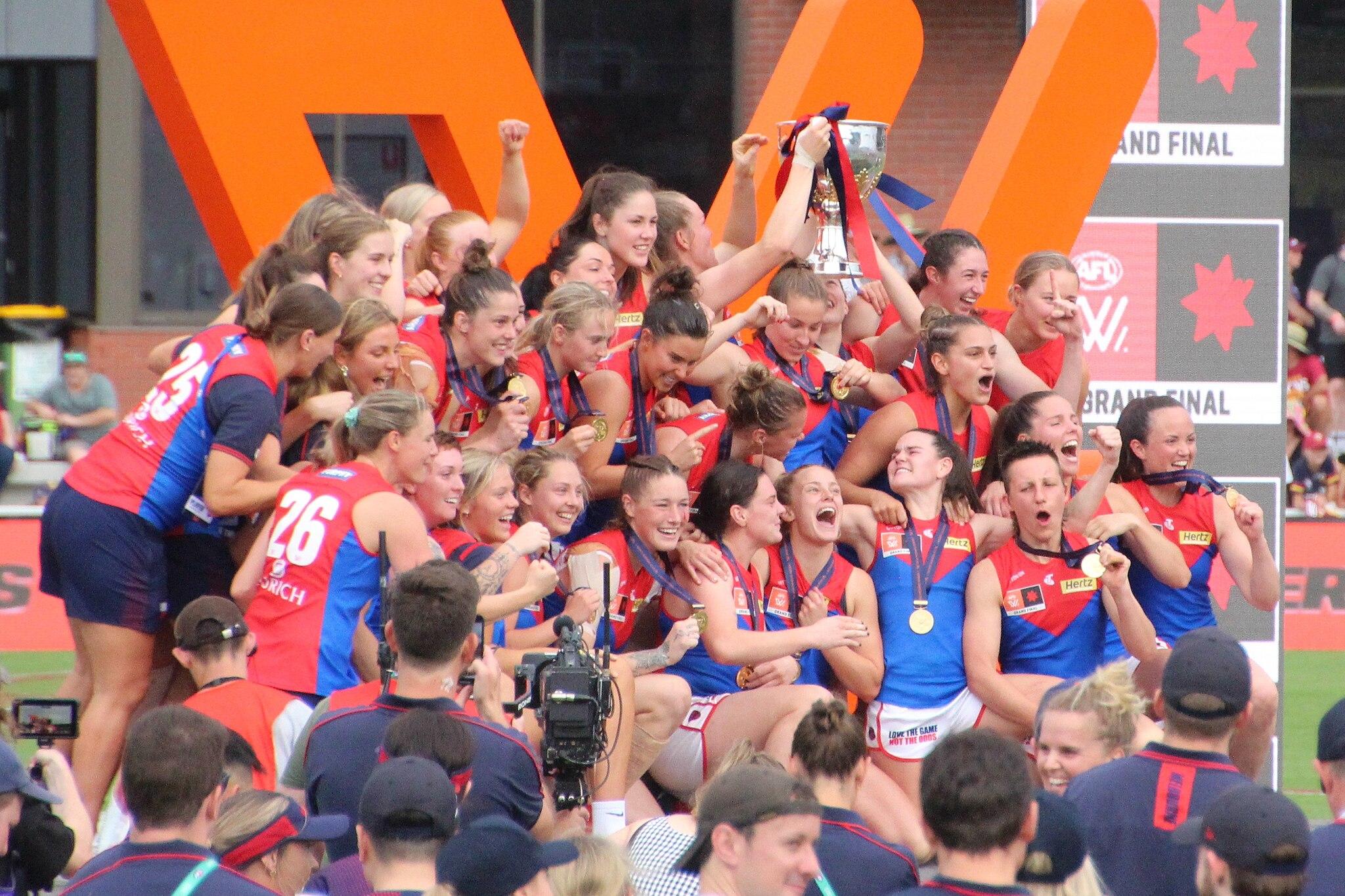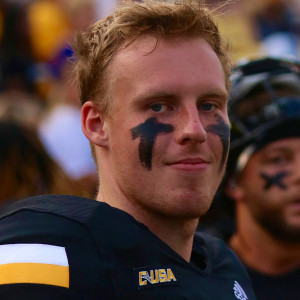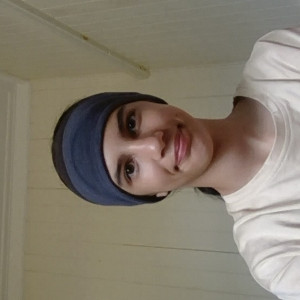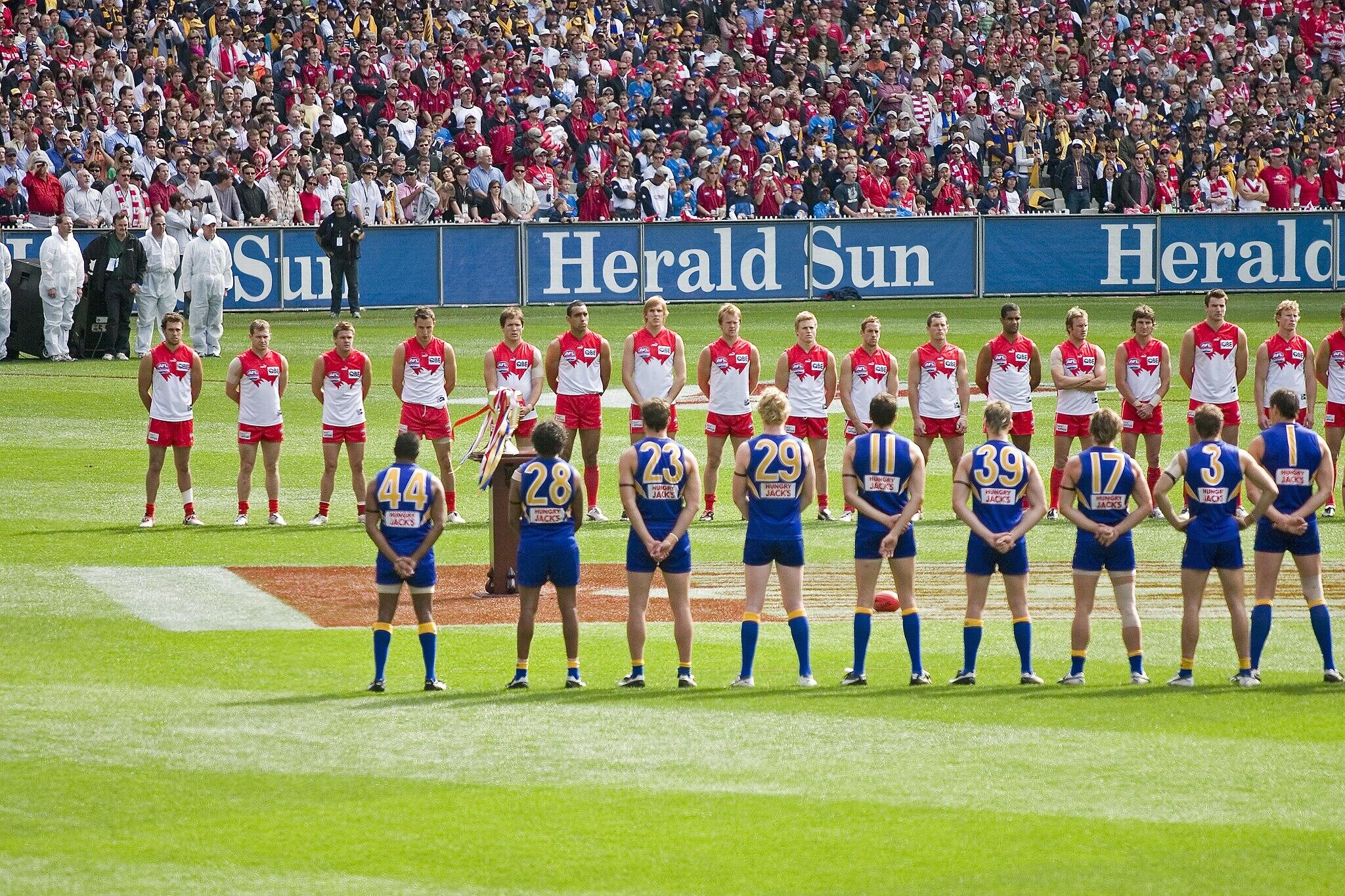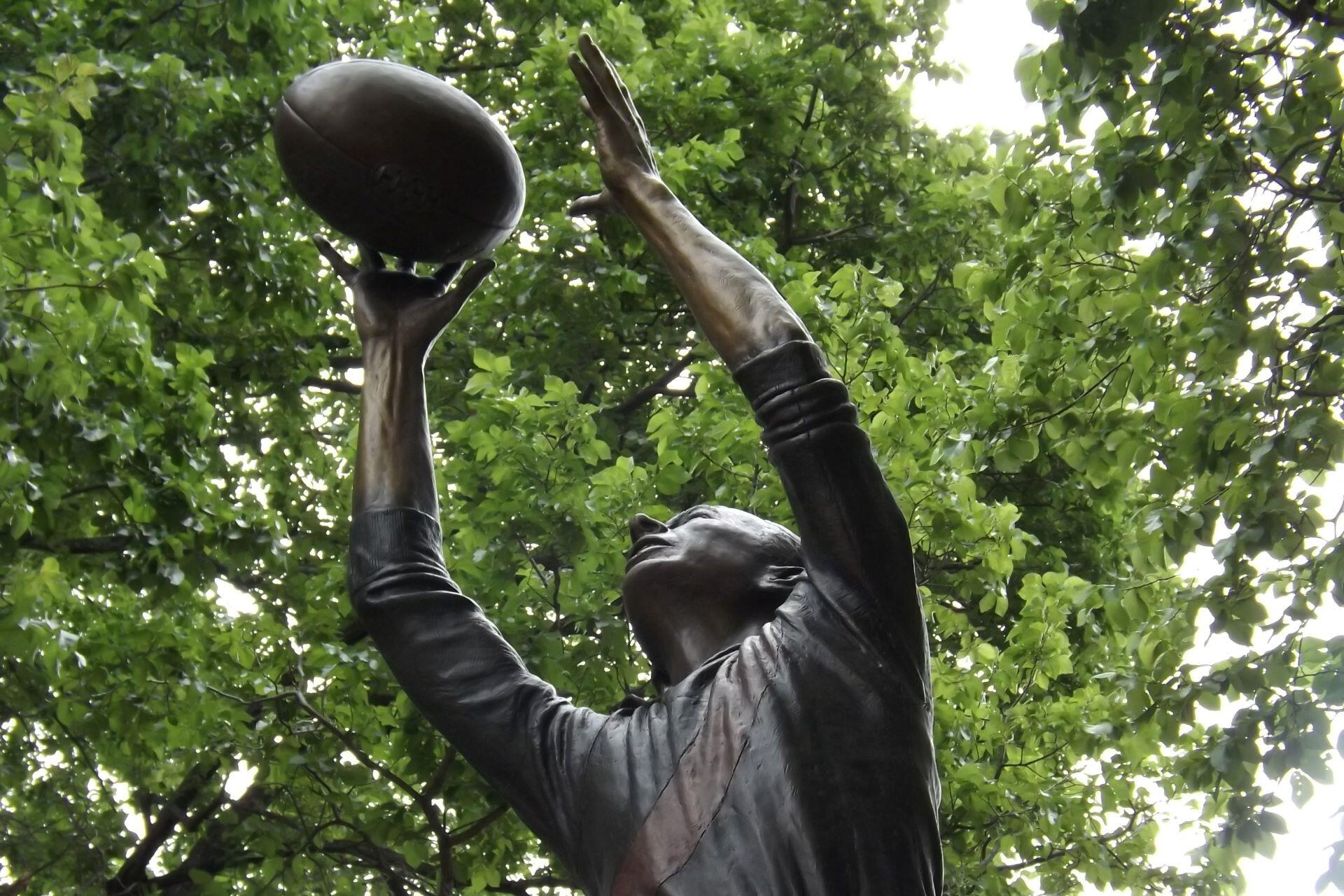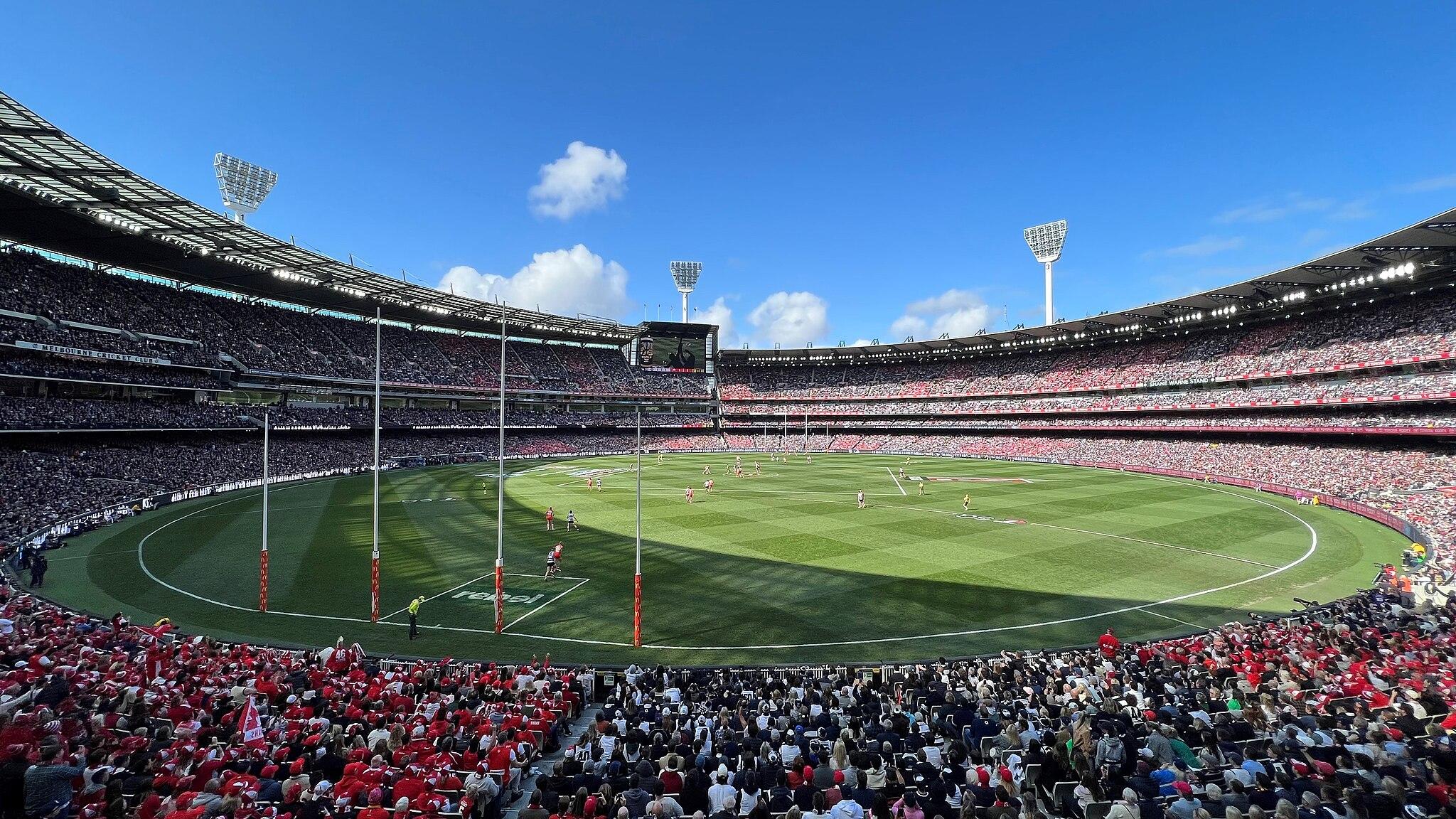Footy, or Aussie rules, is a thrilling sport that can be a bit daunting to understand at first. But once you get the hang of it, the excitement is unparalleled. As with any sport, it helps to understand the game, know who to root for, and contextualise the sport within society.
Here's a brief history of the AFLW, a league that has not only changed the landscape of Australian Rules Football but also paved the way for women's sports in Australia.

Footy at a Glance
To really enjoy footy, it helps to understand the rules of the AFLW.
Aussie rules is played with an egg-shaped ball on an oval pitch with 4 posts at either end of the pitch.
There are 18 players on each side, and though they have positions, they're free to move around the pitch. There are no special rules for any players in particular.
The objective is to score more points than your opponent by scoring goals or “behinds”.
Scoring
Teams score by kicking the ball between the taller of the two posts. This is a goal and worth six points.
If the ball hits either of the larger posts or goes between the taller post and the shorter post, it's called a “behind” and is worth 1 point.
The score is always written in the order of goals, behinds, and total score.
Moving the Ball – The Attacking Team
The attacking team can move the ball by running with it in their hands, bouncing it every 15 metres.
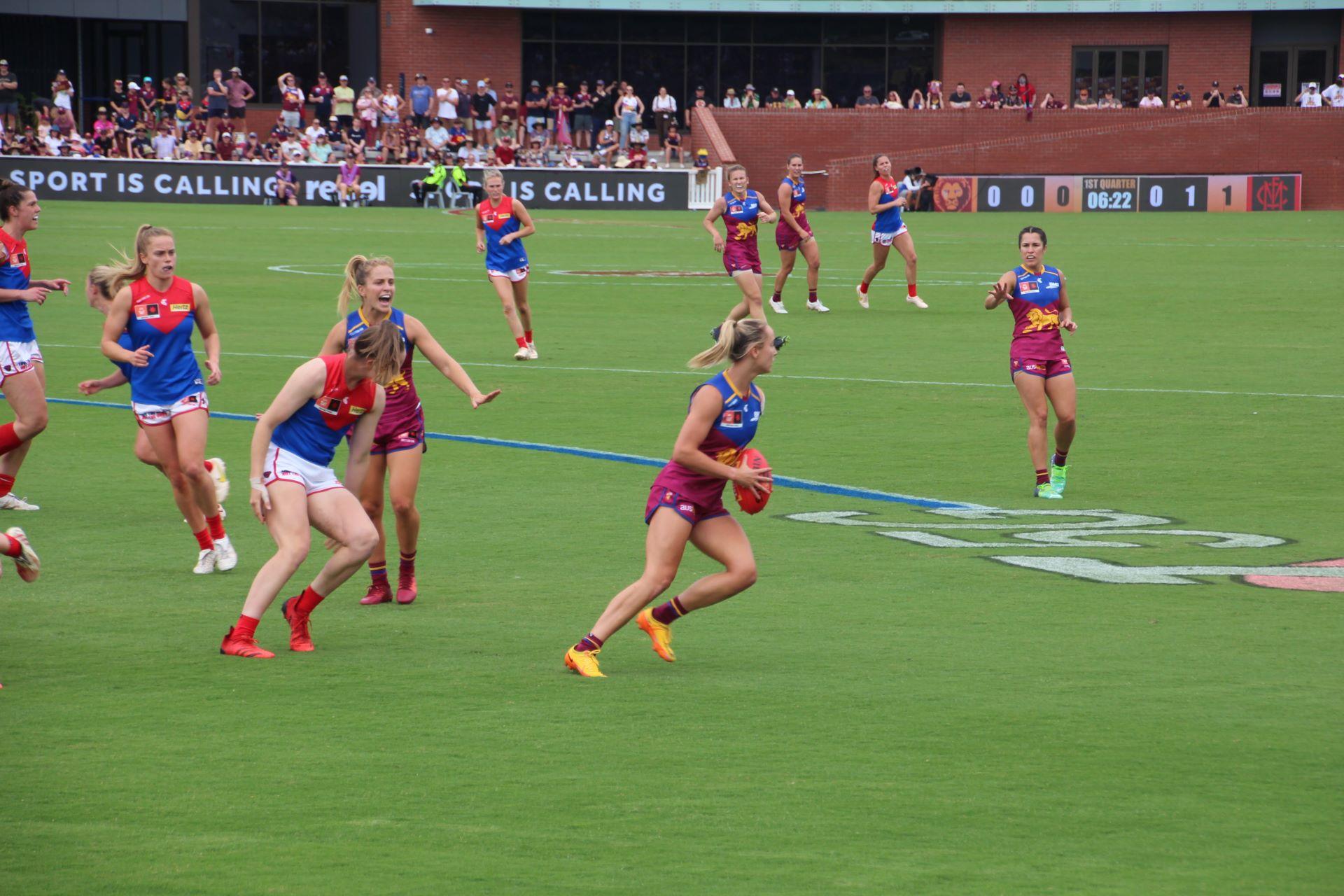
They can pass the ball to a teammate by handballing (punching the ball out of their other hand) or kicking.
If they kick the ball over 15 metres and their teammate catches it cleanly, this is called a mark. The receiving player can "play on" (run or handball) or be given a free, unimpeded kick.
Receiving players can leap into the air using their opponents for leverage, climbing onto their backs or jumping from their shoulders. This is a "spectacular mark" or "speccy" and is a legal and exciting part of the game and something the best players in the AFLW excel at.
Defending
Defending players can tackle players between the shoulders and knees.
They can also bump players (hitting them in the same area, usually with their shoulders or hips), spoil passes by punching them away, or smother kicks by diving into them.
Game Duration
The game consists of 4 periods of 15 minutes each, with stoppages in play added onto the end of each period.
Equipment
Despite how violent and physical Aussie rules is, players play in a sleeveless guernsey top, shorts, and long socks. Some minimal protective gear, such as a gumshield and small shoulder pads or rib protectors, may be worn, but the rules do not mandate these.
Here's a quick explanation of how the sport works.
A Brief History of the AFLW
While the AFLW only dates back to 2017, women's footy has a much longer history.
Aussie rules was created to keep cricketers fit during the winter.
Women have been playing footy in Australia as early as the First World War and perhaps earlier if you count Indigenous ballgames predating Aussie rules.
The first recorded women's games were for charitable causes, such as the 1918 match between Lucas Girls and Melbourne Khaki Girls. However, these events were often seen as novelties and society and the media limited women's chances to play footy.
The same pattern repeated during the Second World War, with charitable matches played while many of the male footy players enlisted in the army and were shipped out.
It wasn't until 1981 that the Victorian Women's Football League (VWFL) was founded, giving women an organised competition. Other leagues sprung up across Australia, but most were minor local leagues that relied on funding and support from players, coaches, clubs, and volunteers to survive.
Despite the lack of support for women's footy, it endured. Eventually, the men's game, the AFL, started to take notice and realise that there was interest in both playing and watching women's footy.
In 2010, the AFL commissioned a review of women's football, laying the foundations for establishing a national league in 2020.
In the 2010s, exhibition matches like the one between Melbourne and Western Bulldogs were held in 2013. Further exhibition matches were held in 2015 and 2016. Following the engagement and coverage of these events, the launch of the national league was brought forward to 2017.
The AFL Women's (AFLW) launched in 2017 with eight teams.

The Original Eight Teams in the AFLW
The original eight teams in the AFLW were all pre-existing AFL teams. They were specifically chosen to provide good geographical coverage of the sport across Australia in important footy markets.
Adelaide Crows
Based in Adelaide, South Australia and playing at Norwood Oval, the Adelaide Crows represented South Australia and Northern Territory through a partnership with ALF NT.
The team won the premiership in 2017, 2019, and 2022.
Brisbane Lions
The Brisbane Lions are based in Brisbane, Queensland, and play at Springfield Central Stadium, though they formerly played at Hickey Park and South Pine Sports Complex.
The Lions won the premiership in 2021 and 2023, finishing runners-up in the inaugural season in 2017.
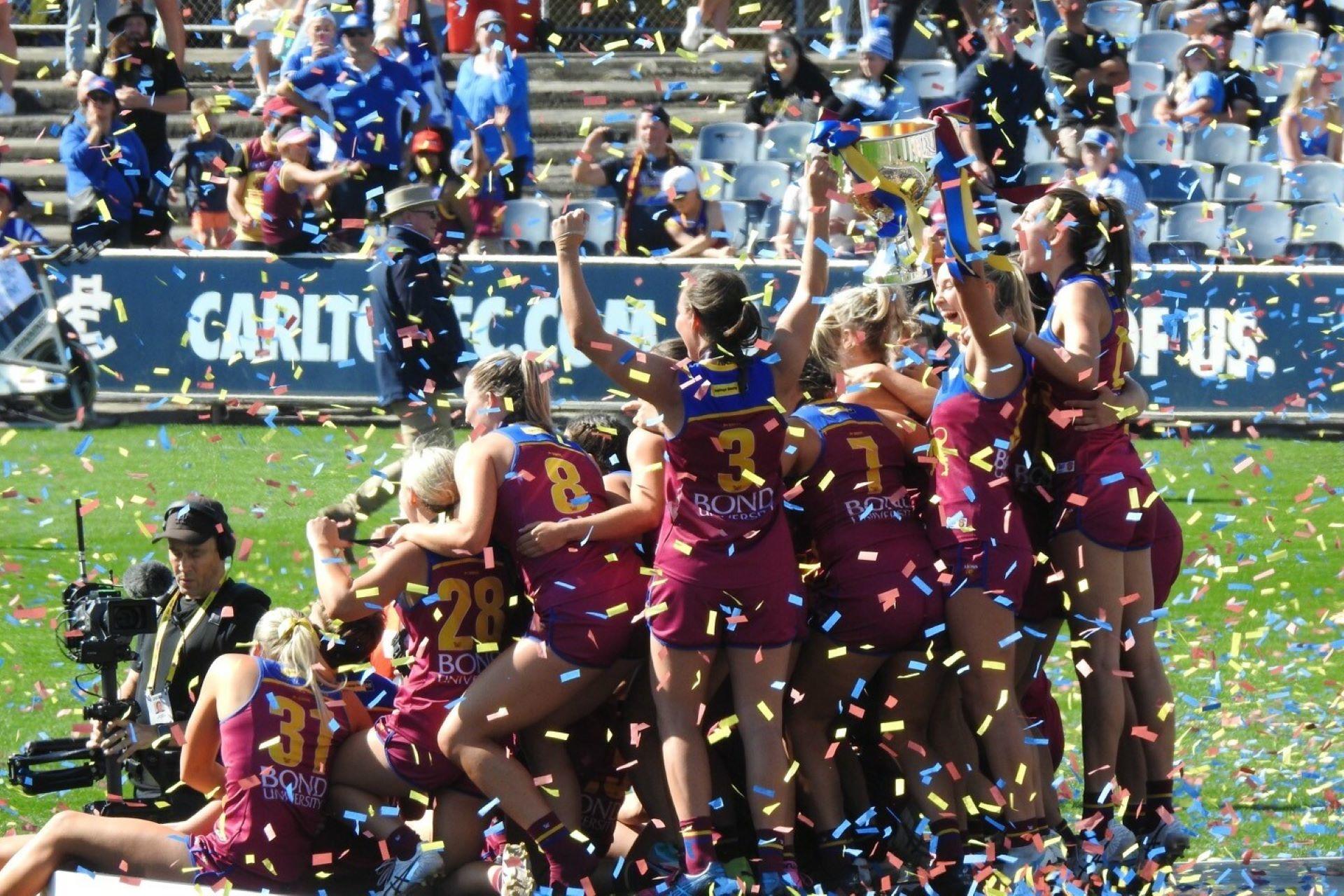
Carlton
Carlton's AFLW team is based in Melbourne, Victoria, and plays at Ikon Park. While the team has yet to win a premiership, it finished runners-up in the 2019 season.
Collingwood
Collingwood is another team from Melbourne, Victoria. Collingwood plays at Victoria Park. The team is yet to win the premiership.
Fremantle Dockers
Fremantle Dockers are based in Perth, Western Australia, and play at Fremantle Oval. Another team yet to win the premiership, the
Fremantle Dockers, were undefeated in the 2020 season before it was cancelled due to the COVID-19 pandemic.
Greater Western Sydney Giants (GWS)
Based in Sydney, New South Wales, the Greater Western Sydney Giants play at various venues, including Blacktown International Sportspark.
Melbourne
Melbourne Football Club was one of the clubs pushing for the AFLW and has been involved in exhibition matches since 2013. They won the premiership in Season 7 in 2022.
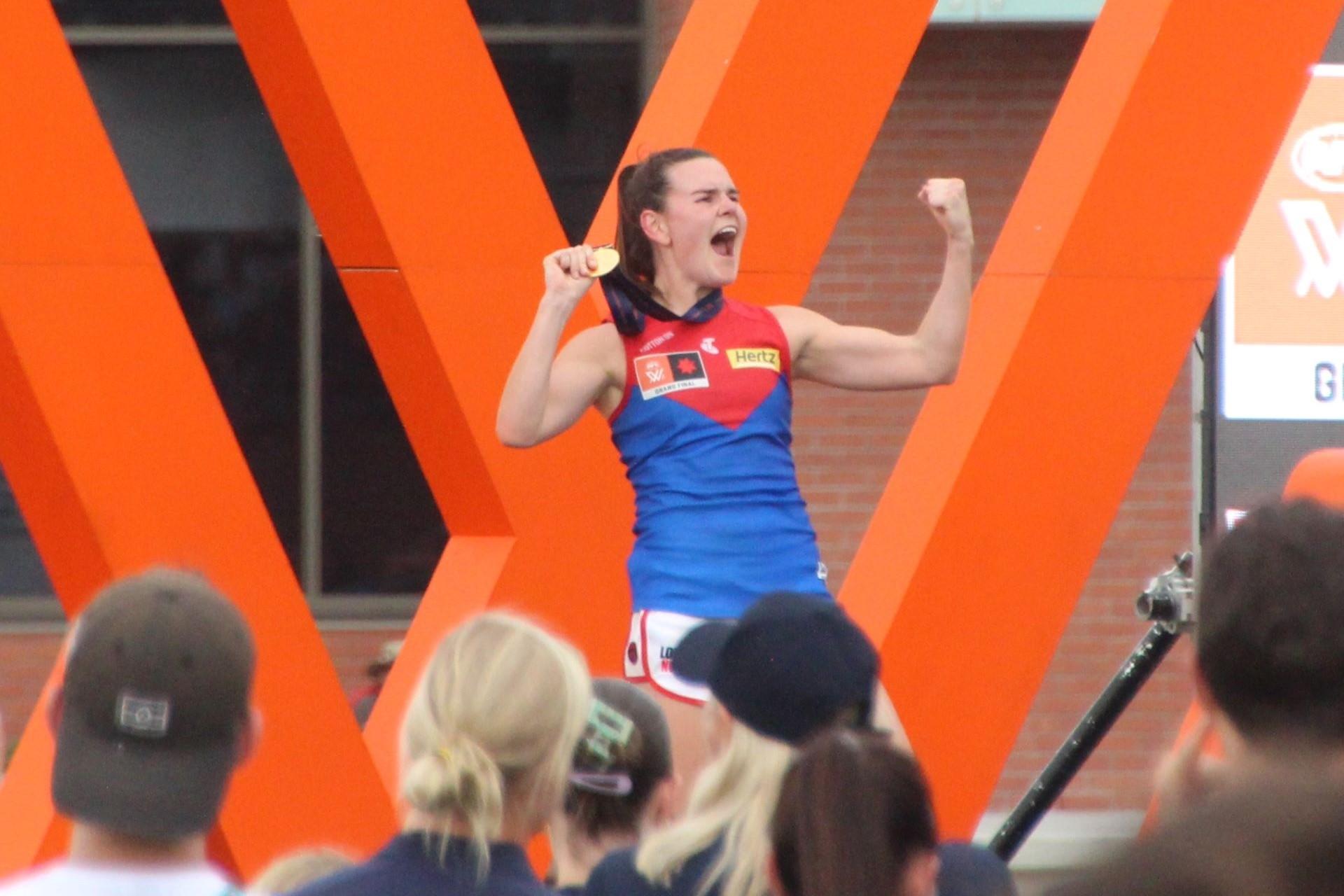
Western Bulldogs
The Western Bulldogs are another Melbourne club. The team plays at Whitten Oval and won the 2018 premiership over Brisbane.
The 2019 AFLW Expansion
In 2019, the AFLW expanded to 10 teams. This included the addition of North Melbourne and Geelong.
North Melbourne
With ties to Tasmania, North Melbourne plays at Arden Street Oval in Melbourne and North Hobart Oval in Tasmania.
The team is competitive and regularly makes it to the preliminary finals.
Geelong
Geelong was a long-time AFL stronghold in Victoria. The team's addition to the AFLW in 2019 meant that the Geelong Cats provided good representation for women's footy in this area. The team plays at the GMHBA Stadium.
Geelong made it to the preliminary finals in its debut season.
The AFLW 2020 Expansion
In 2020, the AFLW competition was expanded to include 14 teams. The season started in February but was cut short due to the COVID-19 pandemic. No premiership was awarded that season, but the clubs Gold Coast, Richmond, St Kilda, and West Coast did play their first matches.
Gold Coast Suns
Playing out of Metricon Stadium in Gold Coast, Queensland, the Suns added to AFLW's presence in Queensland, where the game grew thanks to the Lions' successes.
In their debut season, the Gold Coast Suns qualified for the finals series, but the series was ultimately cancelled due to the pandemic.
Richmond
Richmond plays at Punt Road Oval in Melbourne, Victoria. The first season in the AFLW wasn't great, but it did mean that one of the most successful clubs in the AFL now had a women's team in the AFLW.
Richmond had a winless first season.
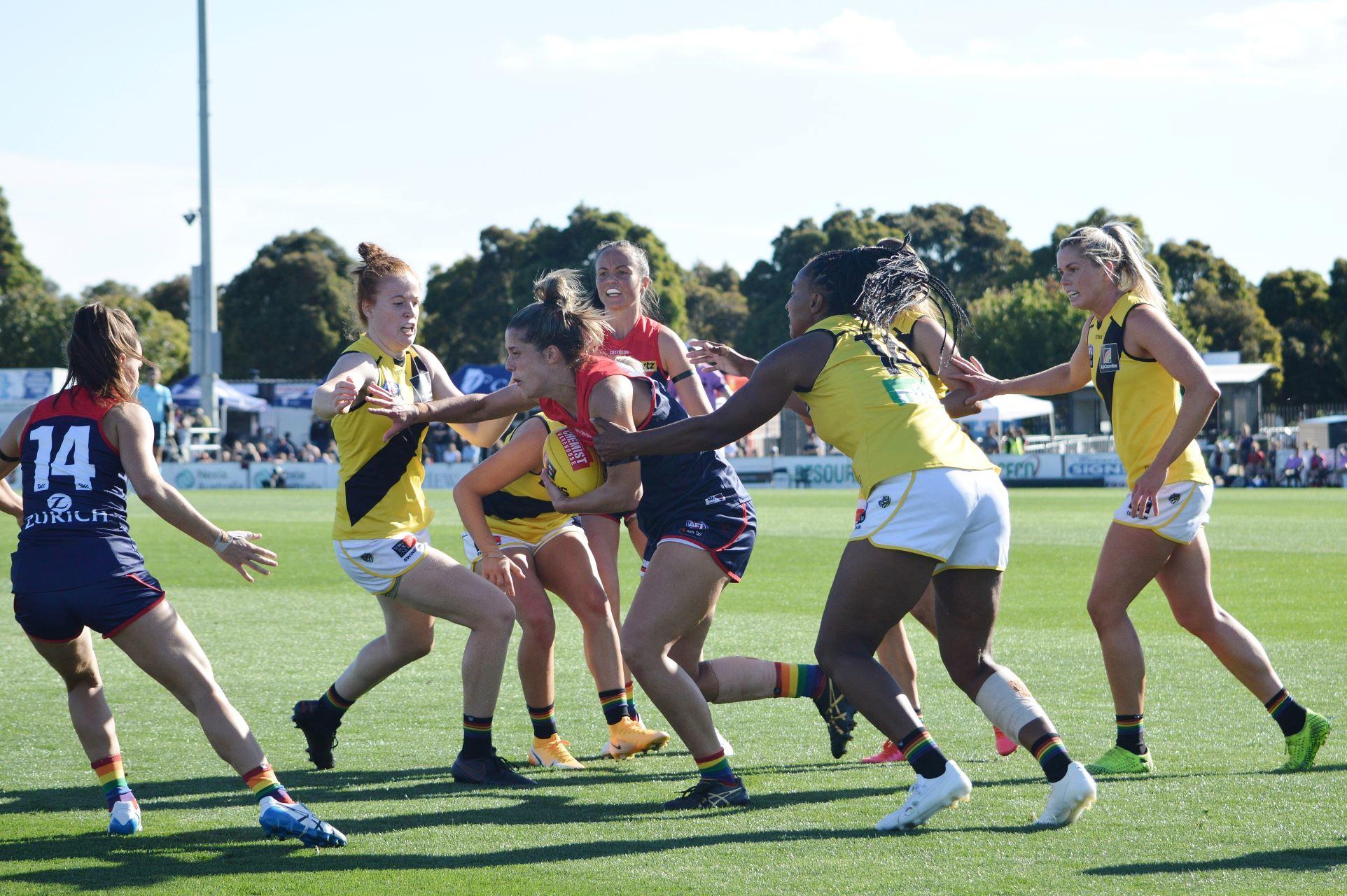
St Kilda
St Kilda is another Melbourne club that plays at Moorabbin Oval. They have yet to make the finals.
West Coast Eagles
The West Coast Eagles play at Mineral Resources Park (Lathlain Park) in Perth, Western Australia. The team's early seasons were tough, and the club has struggled to build a competitive team.
West Coast has a rivalry with Fremantle but has yet to match the success of its Western Australian rivals.
The 2022 Expansion Teams
The expansion of the AFLW to include all 18 AFL teams was huge for the women's game. With Essendon, Hawthorn, Port Adelaide, and Sydney, the AFLW has the same teams as the AFL.
The AFLW only took five years to expand from 8 teams to the full 18 teams of the AFL.
Essendon
Essendon, from Melbourne, has a considerable fanbase that attends matches at Windy Hill. The club's entry into the AFLW was highly anticipated.
Essendon are likely a club with a promising future.
Hawthorn
With Hawthorn, every Melbourne club from the AFL now had an AFLW team. Playing matches at Box Hill City Oval and Frankston Park, Hawthorn is looking to build for the future.
Port Adelaide
Port Adelaide is another big club from the AFL that finally made it into the AFLW. The team plays at Alberton Oval, and the signing of Erin Phillips as the captain showed that the club meant business.
Sydney Swans
Sydney Swans play at Henson Park and North Sydney Oval and are based in Sydney, New South Wales.
Summarise with AI:

